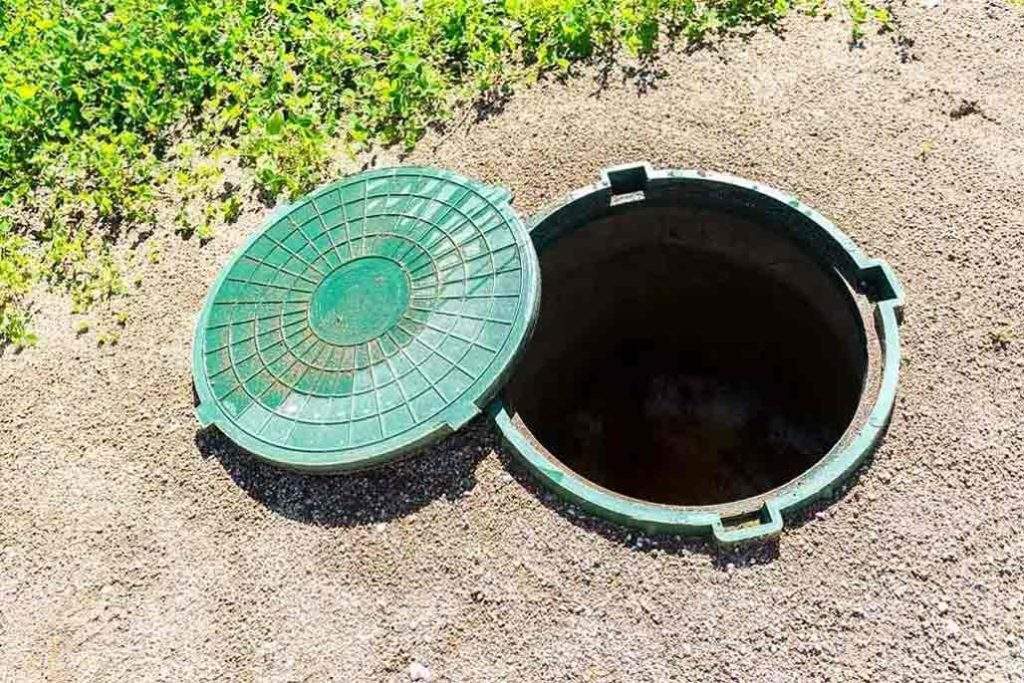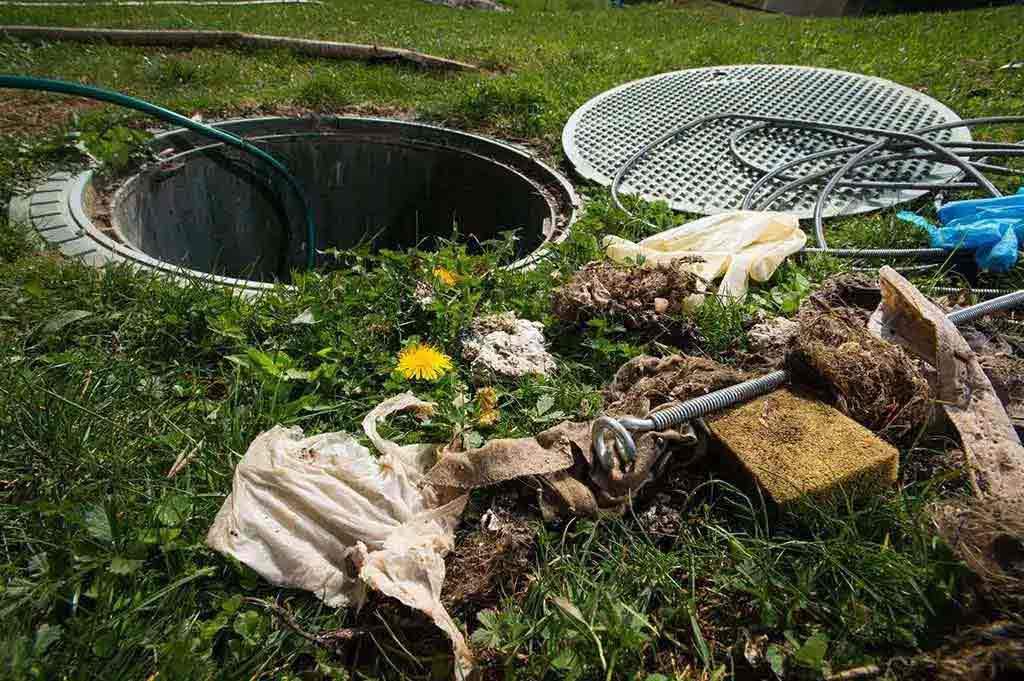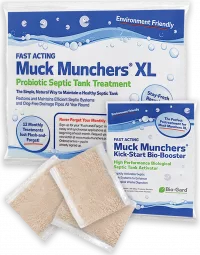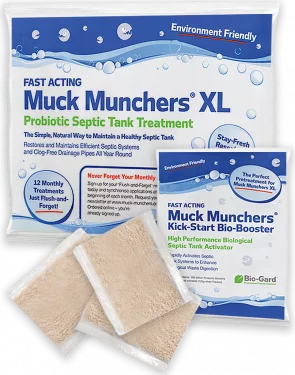Why Your Septic Tank Smells & How To Fix It
Many septic tank owners worry about septic tank smells and how to eliminate septic tank odour when things get a bit too ‘potent’.

Given what we flush into our septic tanks, it’s pretty easy to assume that they’re going to smell foul. However, septic tanks are actually designed to lock-up septic tank smells.
- So how much of an odour is too much?
- Should you really be smelling anything at all?
- Are septic tank smells starting to drive you mad?
Septic tank odours can often occur as a result of a poor bacteria populations in the tank.
Should Septic Tanks Smell?
No! Ideally, your septic tank should not be smelling outside of the main chamber lid.
If you are starting to notice unpleasant smells coming from your bathroom or kitchen areas, there’s clearly a problem or two that need to be addressed.
Why Does Your Septic Tank Smell?
Septic tanks will start to give off horrible odours if there’s a problem with waste digestion. If your waste isn’t being processed effectively, it’s going to start building up and up that can result in a horrendous smell.
For some the answer is to get the tank pumped out. This will work in the short term, but the odds that the result will be more smells in the near future. The bad smells will return and you will probably end up in another unnecessary costly pump-out.
As we always say, it’s cheaper to keep on top of septic tank problems than to pay for pump-outs. You should only ever need to pump out a septic tank a handful of times across the decade to come.
What Causes Septic Tank Odours?
There are various reasons for septic tank odour problems.
Anaerobic Bacteria
One of the most common is anaerobic bacteria – if your tank is short of oxygen, aerobic bacteria will struggle for air resulting in them becoming anaerobic, which are very ineffective in digesting organic waste – and the more the solid waste and sludge build-up, the bigger the anaerobic bacteria problem will become.
Contaminants
Many septic tank odour systems are caused by items that should not be flushed into your septic system i.e. fats, greases, oils, hygiene products and various chemicals – they can either overload the tank or simply clog things up, destroy the bacteria or simply reduce efficient digestion.
How to Stop Your Septic Tank from Smelling

One of the best smelly septic tank solutions is to simply change your habits. Are you flushing more than the three P’s (Pee, Poo and Paper) into your system?
Flushing anything other than the three P’s puts a strain on your septic system. Remember, it’s not possible for your system to digest everything that enters. Two things will happen:
- They’ll weaken or destroy the good bacteria in your tank
- Resulting in an increase the sludge requiring more frequent pump-outs
Prevent Septic Tank Odours by:
- Only flushing the 3P’s into your system
- Increasing the bacteria in your septic tank system using a microbial septic tank treatment
- Following a pump-out add a treatment of septic bacteria get off to a good start. (Muck Munchers XL comes complete with a Free Kick-Start Bio Booster)
- If you are careful about what you deposit into your tank and regularly top up the bacteria on a monthly basis you should then be ok.
- But if the odours persist, add an oxygenator such as Oxy-Tonic Biomass Accelerator. It can stop the odour dead, significantly increase aerobic activity and hence waste digestion.
Why Septic Smells Occur in Bathrooms and Toilets
Septic tank odours in the house can be a real nightmare. However, it doesn’t necessarily mean that your septic tank is failing – but what it will mean is that you need to take some action.
There are several reasons for septic tank odour problems including:
- Blocked or partially blocked drains and soakaways
- Failing septic systems
- Issues with your vent stack
If you notice smells in the house, that your toilet or bathroom basins, shower or bath is emitting odours or that things are starting to flush and drain slowly, it indicates that you have a problem.
If you have an internal vent in a bathroom or toilet, you may need it replaced. Check if that is the source of the smell. External vents very occasionally can block, thanks to leaves or birds using them for nesting.
Seals, as well as vents, can be a culprit when it comes to septic tank odours in the house. If you suspect any of these, contact your plumber.
Drains can become blocked between the house and the tank or treatment plant. In such cases, you can experience slow drainage or air pressure build-ups, resulting in the air in the drains pushing back up through u-bends and waste traps, along with septic odours. Checking the tank levels will help identify whether that is the case. Of course, if the tank is full to overflowing, it’s more likely that you have a soakaway issue. If so, it’s not just time to pump out, you need to have your drains and soakaway rodded or jet washed to clear any debris.
Muck Munchers Digesta can help if you have a partial blockage. Its microbes populate the waste on drain walls to digest organic material attached to them. When used regularly it will keep sink and bath waste traps and drains clean, free-flowing and blockage-free.
Why Your Septic Tank Smells: Summary
Around 5% of properties in the UK are on non-mains drainage systems. Septic systems are simple to maintain and if you take care and follow a few simple steps, such as limiting discharging any contaminant material and using a reputable biological septic system treatment regularly you can forget about septic tank smells.
Our customers tell us that using Muck Munchers helps to maintain a healthy septic tank significantly reduces the need for costly pump-outs too.
Here’s What One Customer Said About Septic Smells
“I have had a septic tank inherited from the previous owner for 46 years and emptied twice a year and ALWAYS SMELLING. Since the introduction of your Muck Munchers, I am very pleased to tell you that my septic tank is as sweet as possible – not a tinkle of a smell. Congratulations and many thanks.”
Paul Banning










